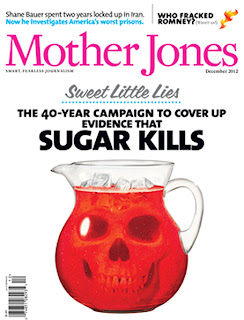The "liberal" US magazine Mother Jones is running an article that purports to be a scoop about 'Big Sugar' (yes, they do use that term). For those who have an interest in how the anti-tobacco blueprint is rolled out to other products, it makes for morbidly fascinating reading.
Gary Taubes, who has written various diet and diet-related books, has found 1,500 old documents from defunct sugar companies which he thinks expose the practices of this evil industry. He is taking his cue from the Big Tobacco Mr Butts' documents, of course.
They show how Big Sugar used Big Tobacco-style tactics to ensure that government agencies would dismiss troubling health claims against their products.
Except they didn't. They commissioned research which found that sugar is, as the FDA have classed it, 'generally recognised as safe'. Which it is.
With the jury still out on sugar's health effects, producers simply needed to make sure that the uncertainty lingered.
What is this supposed to mean? If the jury is out, uncertainty is only appropriate reaction. Taubes does not claim that there is damning evidence against sugar—he says that "science will ultimately settle the matter". It seems, therefore, that Big Sugar's crime is to have failed to come up with compelling evidence to indict its own product, despite nobody else having done so either. Taubes only briefly acknowledges that this may be because sugar is not actually a dangerous substance, but even this caveat is given in the most slanted way...
Like the tobacco industry before it, the sugar industry may be facing the inexorable exposure of its product as a killer—science will ultimately settle the matter one way or the other—but as Big Tobacco learned a long time ago, even the inexorable can be held up for a very long time.
The words "may" and "inexorable" do not belong in the same sentence. Either there is sound science to condemn sugar as a health hazard or there isn't, and since Taubes' case for the prosecution rests on the ramblings of the cranky puritans at the Center for Science in the Public Interest and the batty and deceitful fruit-hater Robert Lustig, I'm going for the latter.


Absolutely great observation: "It seems, therefore, that Big Sugar's crime is to have failed to come up with compelling evidence to indict its own product, despite nobody else having done so either."
ReplyDeleteOf course, anyone who does product health research without the expressed goal of proving that something is bad for you has to be condemned for having "conflict of interest".